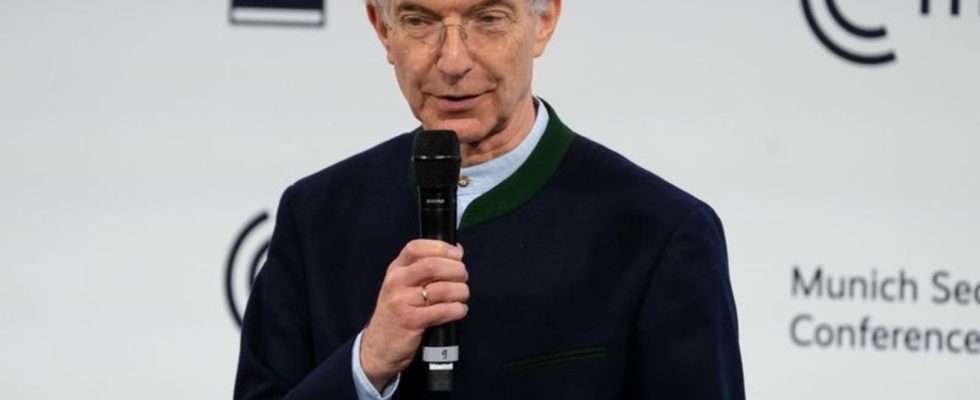geopolitics
Heusgen for extension of G7 format
Christoph Heusgen at the 59th Munich Security Conference. photo
© Sven Hoppe/dpa
The heads of state and government of the G20 round of the most important industrialized and emerging countries are meeting in India. China is trying to expand its power. How can Beijing be contained?
In addition to Germany, the G7 group of economically strong democracies also includes France, Italy, Japan, Canada, the USA and Great Britain.
“Increasing the clout of the G7 format”
Heusgen added: “But we also see that the relative weight, especially the economic weight of these countries is decreasing. That’s also why I think an extension would be logical.” It is conceivable that the G7 format could also include democratically established countries from other continents, “South Korea and Australia, for example. That could increase the clout of the G7 format.”
Heusgen’s proposal is also to be understood as a reaction to the Chinese government’s attempts to expand its power internationally. At the summit meeting of the Brics Group of important emerging countries in Johannesburg in August, the expansion of the group by six members was announced. In addition to Argentina, Saudi Arabia, Iran, the United Arab Emirates, Egypt and Ethiopia are due to join the alliance of important emerging countries on January 1, 2024. South Africa is currently chairing the format, and Brazil, Russia, India and China have also belonged to the format so far.
Brics alliance wants to form a counterweight
The aim of expanding the Brics alliance is to form a counterbalance to the geopolitical and economic dominance of the West. The Brics countries also want to reduce their dependence on the US dollar as the global reserve currency.
The heads of state and government of the G20 round of the most important industrialized and emerging countries meet this Saturday and Sunday in the Indian capital New Delhi. Chancellor Olaf Scholz (SPD) is also expected. In addition to Germany, France and the USA, the group also includes Russia and China.
When asked whether an expansion of the G7 would devalue the G20 format of the most important industrialized and emerging countries on all continents, Heusgen recalled that the G20 round was brought into being in connection with the global financial crisis of 2008/2009. “There are countries represented there that are important for economic and financial development worldwide. But they are not all democracies.”
Heusgen said that even with the G20 one had to consider whether and how to expand it if necessary. “I think the idea, which Chancellor Scholz also advocates, of expanding the G20 to include the African Union is a good idea.”
China and India as key players
Heusgen was cautious about the decision by Chinese head of state and party leader Xi Jinping not to travel to the G20 summit in India. “Of course it’s not nice that the Chinese president isn’t coming,” he said. “However, we also know about the tensions between China and India, especially in the border regions.” It may be that these tensions played a role in the cancellation.
India is overtaking China as the most populous country and has become very self-confident under Prime Minister Narendra Modi, Heusgen said. “Perhaps President Xi wanted to spit Modi into the summit soup with his rejection,” he added. The rejection makes it clear: “The unity of the Brics countries recently celebrated in South Africa is only very superficial.”
The 68-year-old Heusgen was foreign and security policy advisor to the then Chancellor Angela Merkel (CDU). From 2017 to June 2021 he worked as the Permanent Representative of the Federal Republic of Germany to the United Nations in New York.

